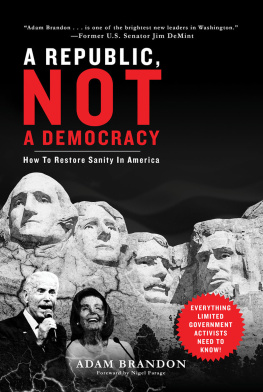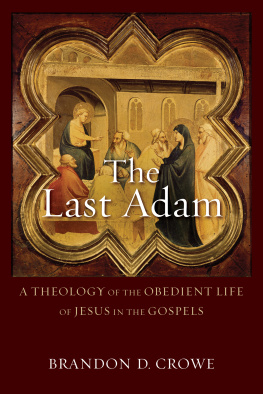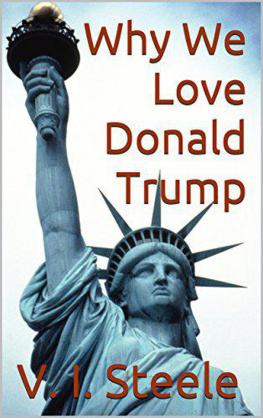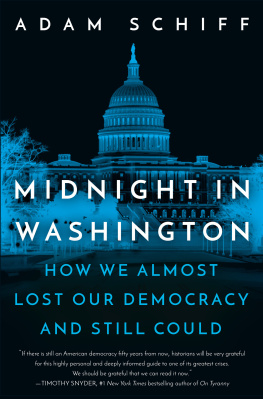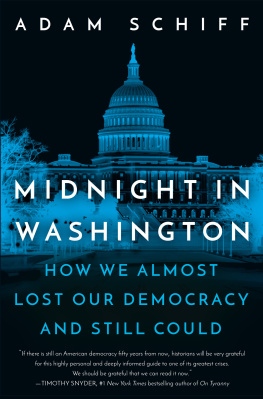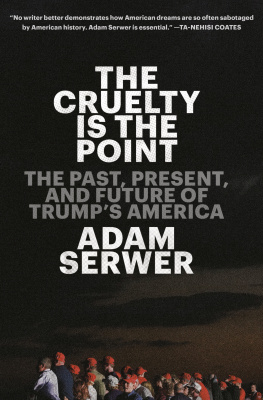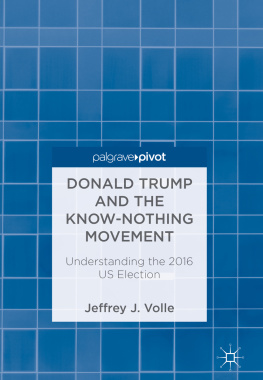


Copyright 2021 by Adam Brandon
All rights reserved. No part of this book may be reproduced in any manner without the express written consent of the publisher, except in the case of brief excerpts in critical reviews or articles. All inquiries should be addressed to Skyhorse Publishing, 306 West 37th Street, 11th Floor, New York, NY 10018.
Skyhorse Publishing books may be purchased in bulk at special discounts for sales promotion, corporate gifts, fund-raising, or educational purposes. Special editions can also be created to specifications.
For details, contact the Special Sales Department, Skyhorse Publishing, 307 West 36th Street, 11th Floor, New York, NY 10018 or info@skyhorsepublishing.com.
Skyhorse and Skyhorse Publishing are registered trademarks of Skyhorse Publishing, Inc., a Delaware corporation.
Visit our website at www.skyhorsepublishing.com.
10 9 8 7 6 5 4 3 2 1
Library of Congress Cataloging-in-Publication Data is available on file.
Cover design by Maddy OConnor and Kai Texel
Print ISBN: 978-1-5107-5634-2
Ebook ISBN: 978-1-5107-5635-9
Printed in the United States of America
Table of Contents
by Nigel Farage
To Joan Carter, Rob Lansing, and Frank Sandseach of you believed in me when few did
It is not until a people lose their religion that they lose their religious liberty, not until they cease to speak as free men and women that they lose freedom of speech, not until they permit themselves to be herded into a subservient rabble that they lose their freedom of assemblyand, as businessmen, not until they begin to rely on outside help, political or otherwise, that they lose their freedom to manage their own establishments.
Harry Lynde Bradley
Foreword

A s I write this, Christmas has passed and New Years is a couple days away. For me, it is time to raise a pint of British ale to celebrate the culmination of Brexit. More than four years ago, voters in the United Kingdom passed a referendum to leave the European Union because of a strong desire to reclaim our sovereignty as a nation.
This task was all but impossible. For decades, political, academic, media, and economic elites in London thought what was good for them was good for Britain. The debate over Brexit was no different. Those who wanted the United Kingdom to remain in the European Union were influential and arrogantly believed they knew what was best for us all and had a certain measure of contempt for supporters of Brexit.
To the American reader, this must sound familiar. The elites in America are just as self-righteous as those in London. Whatever grows their power is the best course, even if it worsens the lives of others and further erodes the precious institutions that promote the rule of law, sovereignty, and liberty.
The great British philosopher John Locke wrote, No mans knowledge here can go beyond his experience. The elites who supported remaining in the European Union could not understand the experience of those who wanted to leave. Similarly, the elites in Washington, D.C. who are ever fighting for more control over your life do not understand the experience of most Americans, who so desperately want to be left alone.
The Anglo-American democratic systems have their roots in the mists of time. From the Magna Carta to the Scottish Enlightenment to the American Revolution, we have believed in the rights of the individual to govern themselves and their destinies. Many may wonder how the Magna Carta, a document written during the thirteenth century, could have influenced eighteenth century America. The Magna Carta was the culmination of efforts to restrain King John and his arbitrary rule.
The Founding Fathers of America were heavily influenced by the Magna Carta in their quest for independence from Great Britain and the tyrannical reign of King George III. No taxation without representation, the famous creed from Boston in protest of the Intolerable Acts, was taken from the Magna Carta. In The Rights of the British Colonies Asserted and Proved, the fierce American patriot James Otis wrote:
[I]f it was thought hard that charter privileges should be taken away by act of parliament, is it not much harder to be in part, or in whole, disfranchised of rights, that have been always thought inherent to a British subject, namely, to be free from all taxes, but what he consents to in person, or by his representative? This right, if it could be traced no higher than Magna Carta, is part of the common law, part of a British subjects birthright, and as inherent and perpetual, as the duty of allegiance; both which have been brought to these colonies, and have been hitherto held sacred and inviolable, and I hope and trust ever will. It is humbly conceived, that the British colonists (except only the conquered, if any) are, by Magna Charta, as well entitled to have a voice in their taxes, as the subjects within the realm. Are we not as really deprived of that right, by the parliament assessing us before we are represented in the house of commons, as if the King should do it by his prerogative? Can it be said with any colour of truth or justice, that we are represented in parliament?
Many of the protections of individual liberty that became part of the Bill of Rights were inspired by the Magna Carta. The very foundations of the American experiment are limited government and individual liberty, but those foundations are under attack by people desperate for political power in Washington, D.C.
Sovereignty in Britain rests in Parliament in Westminster. But in 1973, the United Kingdom joined the European community and surrendered much of its power to the seat of the European Union in Brussels. I am very supportive of trade and ongoing deep partnerships with our European neighbors. It is very important to maintain these relationships to grow our economies and prosper. I am not in favor of ceding nearly a thousand years of self-governance, the cost of which was steep and hard-fought, and our sovereignty to unaccountable bureaucrats in Brussels.
While the London-based elites enjoyed this arrangement, it did not travel well outside of London, where most Britons wondered whether we were an independent country or not. The elites in London, as well as those in Brussels, couldnt understand why Brits would want to leave the European Union. The elites backing the European Union talked of the supposed economic benefits and ease of travel throughout Europe, but most Britons were wary of such arguments. They wanted the United Kingdom to be governed by the United Kingdom.
What makes Britain is not the regulations and government programs, but the people. They do not want to be managed by faceless bureaucrats. These Britons wanted to restore self-government and the independence of the United Kingdom. Many pundits have opined that immigration was the primary reason for Brexit, not so subtly hinting at prejudice or xenophobia, but an exit poll found that [n]early half (49%) of leave voters said the biggest single reason for
How did it happen? Grassroots made Brexit possible. It started small, in pubs and in peoples homes. Rather than being told what to think by the media, Britons took comfort in conversations with their neighbors. They chose independence from Brussels and the path of self-determination and self-government.
Next page
